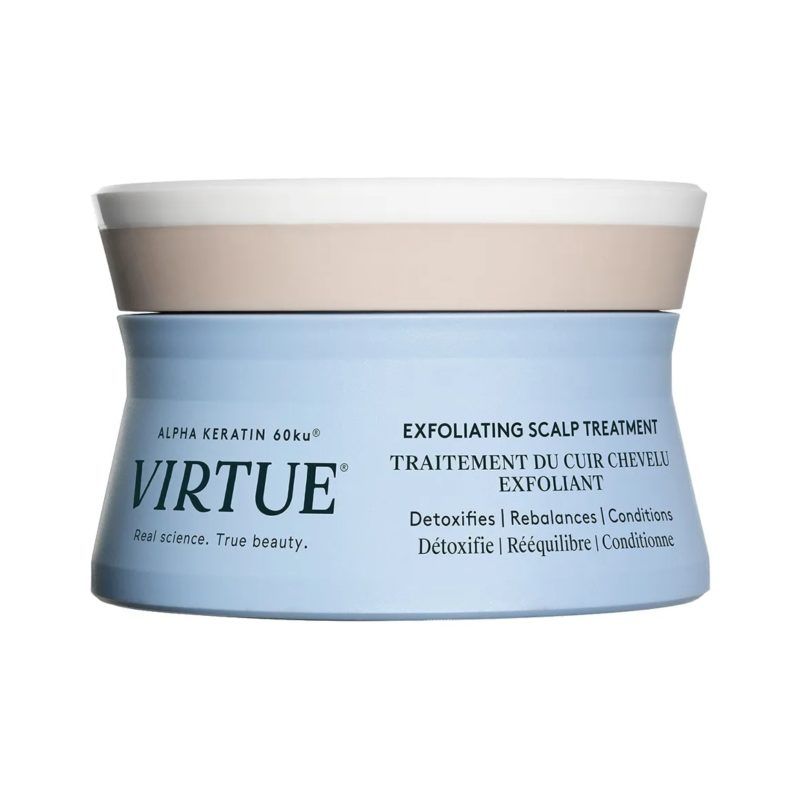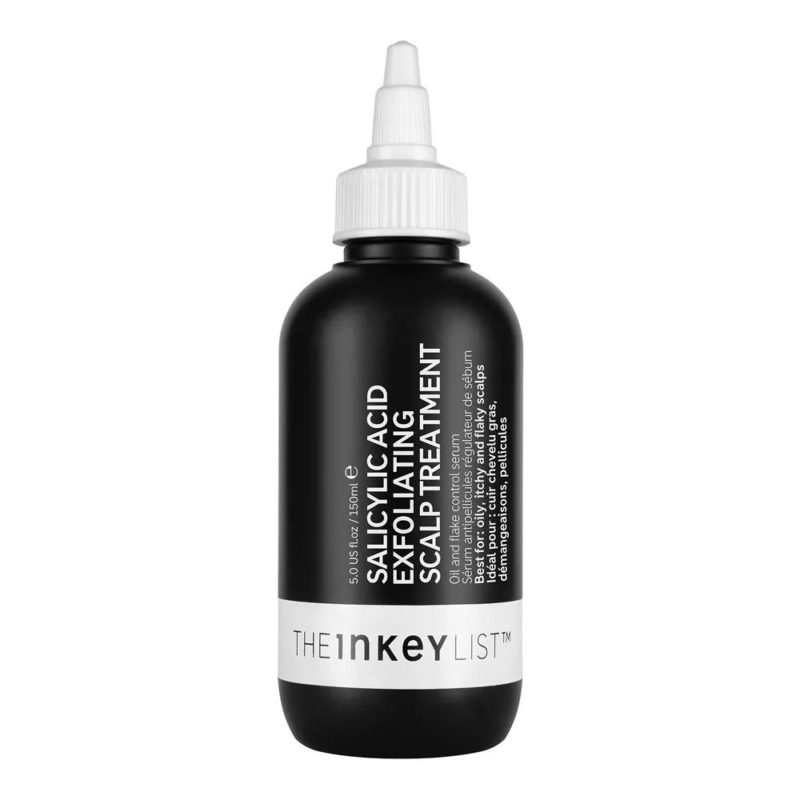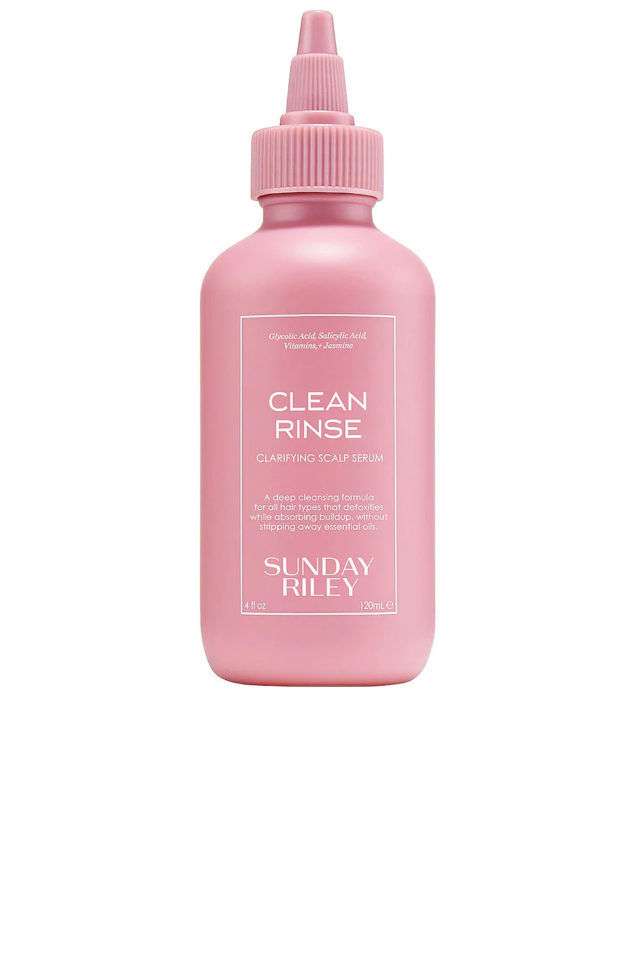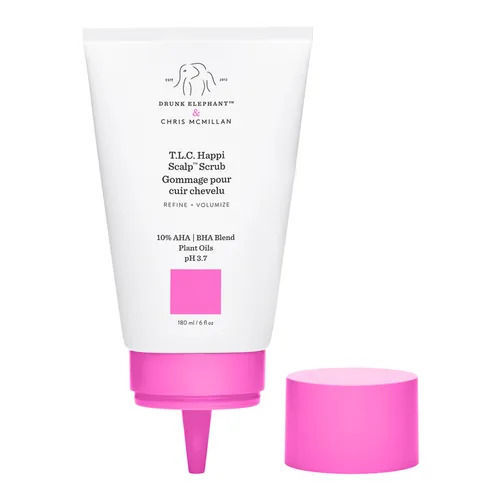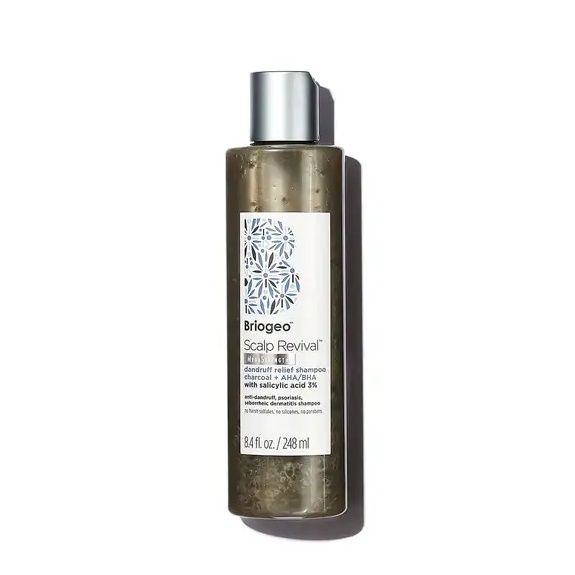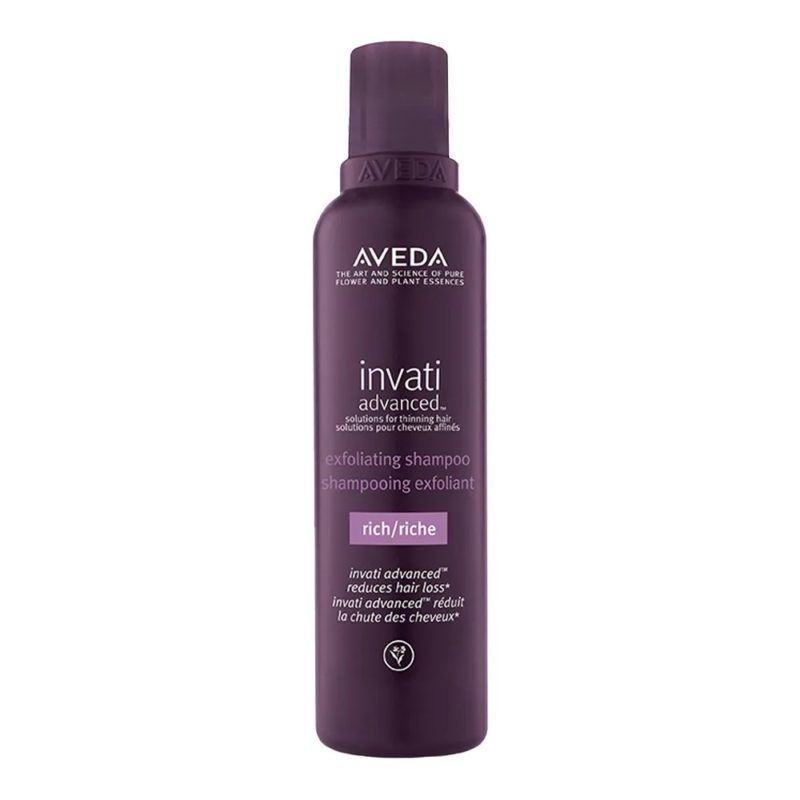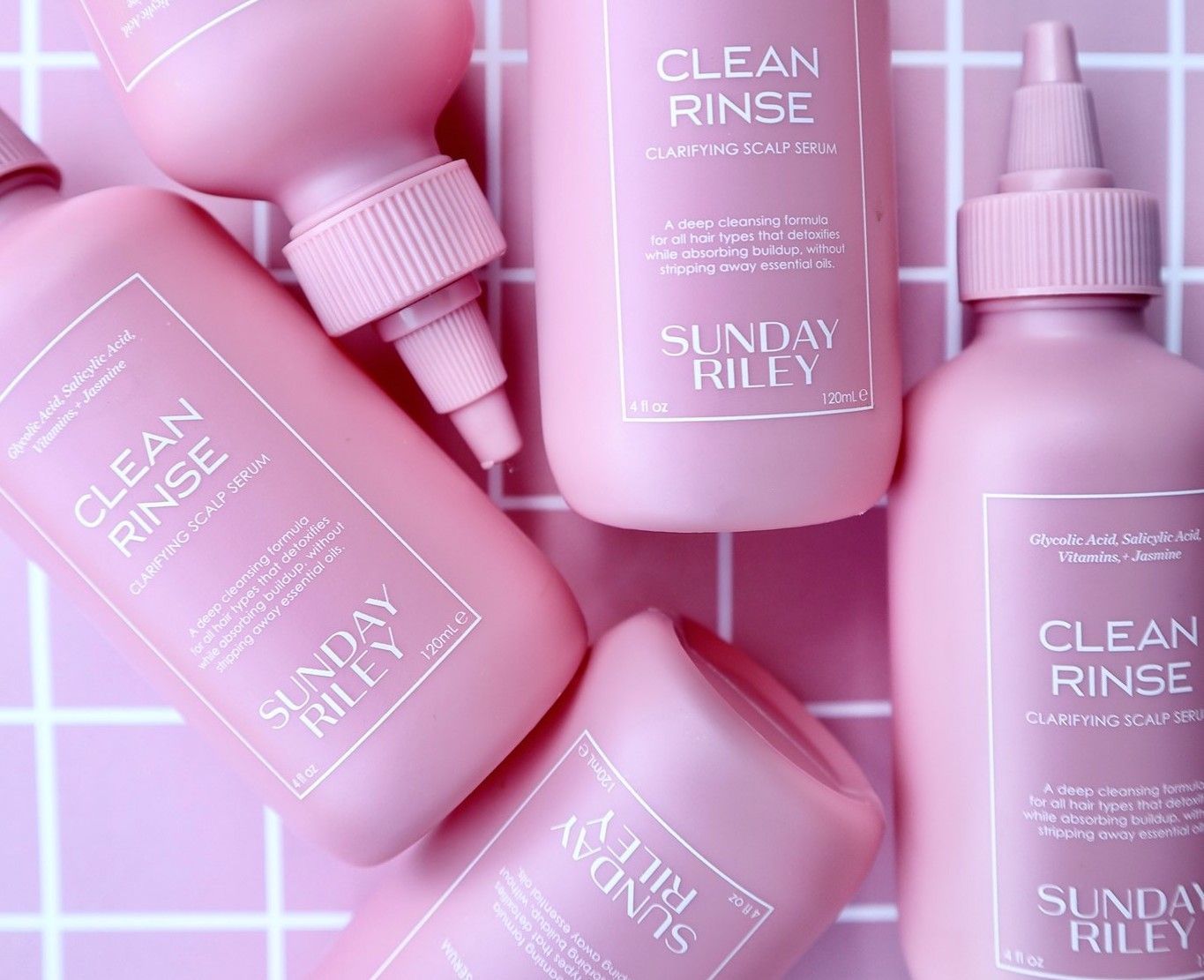
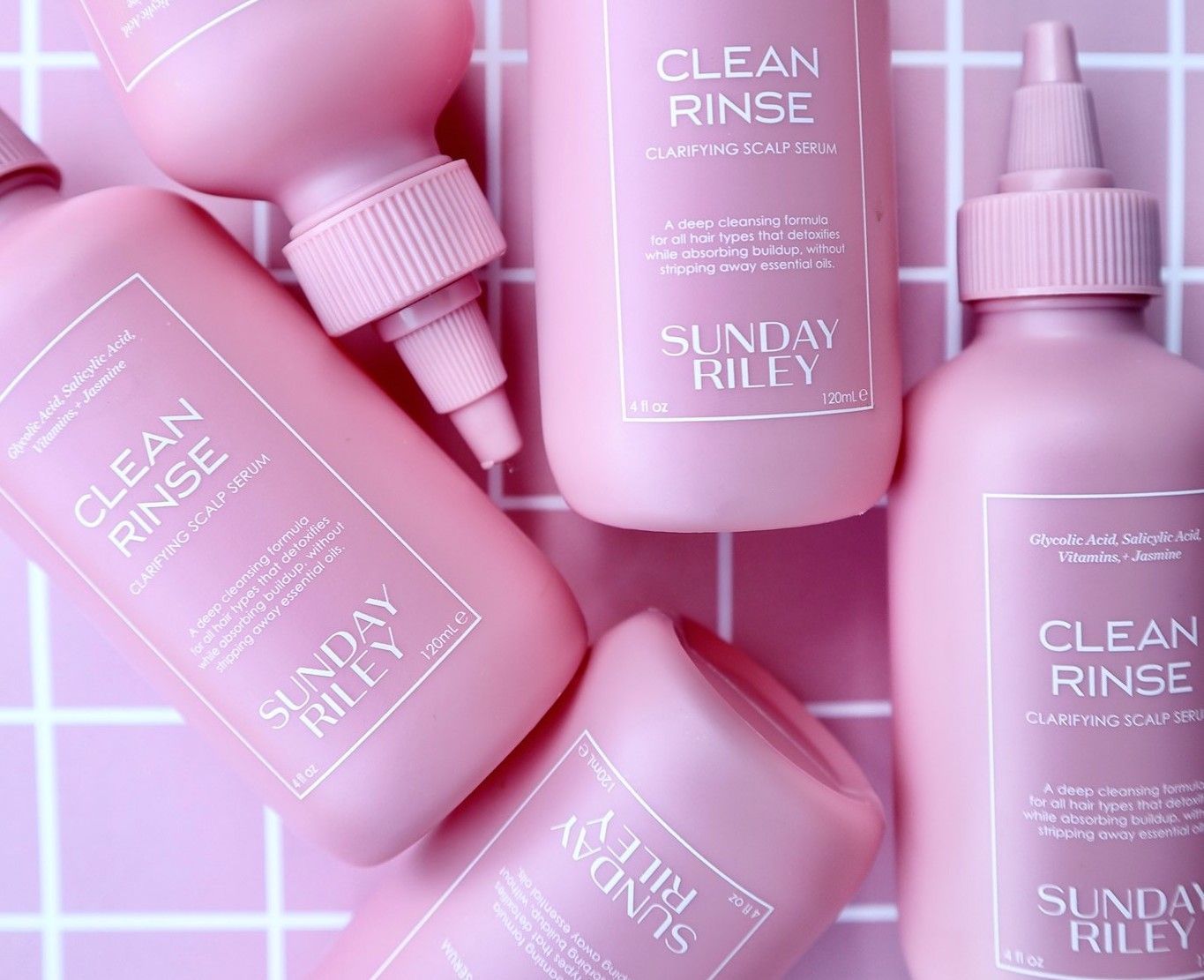
You likely already have a salicylic acid staple in your skin and body-care routine, why not add it to your hair care too.
Salicylic acid might be the ultimate all-in-one skincare solution. It has been shown that salicylic acid is helpful at removing dead skin cells and other pore-clogging impurities from the face, body, and even the scalp. While its benefits for the face and body are generally reported, there are fewer conversations about how beneficial salicylic acid is for hair.
What you need to know about salicylic acid for your hair:
The basics
Salicylic acid is a form of chemical exfoliant known as a beta-hydroxy acid (BHA) that helps in the removal of excess oil and dead skin cells from the skin’s surface. According to experts, BHAs are oil-soluble, which means they cut through any surface oil and exfoliate deep into the pores. As a result, salicylic acid is a good option for treating acne and excess oil on the skin.
And, because the scalp has skin, salicylic acid is a terrific choice for the scalp—especially for those who suffer from dandruff, seborrheic dermatitis, product buildup, and excess oil. Also, make sure to use it with moisturising ingredients and other hydrating treatments to avoid excessive dryness.
The benefits
Many of us are guilty of preserving a stunning hairstyle with copious amounts of dry shampoo and volume mousse. Fortunately, salicylic acid naturally removes the epidermis’s outermost layer, allowing oil, dead skin, and product buildup to wash away.
- Eliminates dandruff
By breaking down cell-to-cell adhesion, salicylic acid efficiently eliminates flaky skin from the scalp.
- Reduces scalp irritation and itching
Excessive dead skin buildup on the scalp can aggravate an itchy scalp. Salicylic acid softens dead, irritated skin, making it simpler to wash in the shower.
Even if you don’t have any of these concerns, the ingredient is still beneficial since it ensures that any nasty buildup in your hair breaks down and washes away.
The important things to consider
While most people can benefit from a small amount of salicylic acid on their scalp, there are a few exceptions.
- Sensitive scalps
Sensitive scalps may experience irritation or sting as a result of salicylic acid. Similarly, those with broken, inflamed, or fragile skin on the scalp should avoid salicylic acid treatments and certainly not on open cuts and injuries.
- Dry scalps
Those with extremely dry scalps and hair should tread carefully while using salicylic acid, since the ingredient may be excessively drying to the hair shaft or scalp. In that case, consider incorporating it into your regimen twice a month (rather than weekly), and combine it with moisturising ingredients and other hydrating products to avoid drying out.
Note: Do not use salicylic acid-based shampoo on a daily basis. Limit yourself to every few washes or so.
The steps of usage
When it comes to scalp care, there are several solutions and application methods to choose from. It all comes down to personal choice and needs.
Scalp shampoos
Experts advise looking into medicated shampoos and topical serums for scalp disorders such as psoriasis. There are a few alternatives for the rest. Scalp shampoos are a good place to start because they don’t take any more effort beyond the ordinary wash-and-go. Simply replace your regular shampoo with a salicylic acid-based option one to three times each week (the number will differ based on your scalp problems and how frequently you wash your hair).
Scalp scrubs
Try a scalp scrub for a more thorough cleanse. They have a fine texture that is completely safe to use on the head. Slough away!
Scalp serums
Scalp serums, pre-cleansers, and treatments are effective for addressing particular concerns and improving scalp health.
Shop these scalp treatments
Lead image courtesy of Sunday Riley
The post Why salicylic acid can be good for your hair, too appeared first on Lifestyle Asia Hong Kong.

